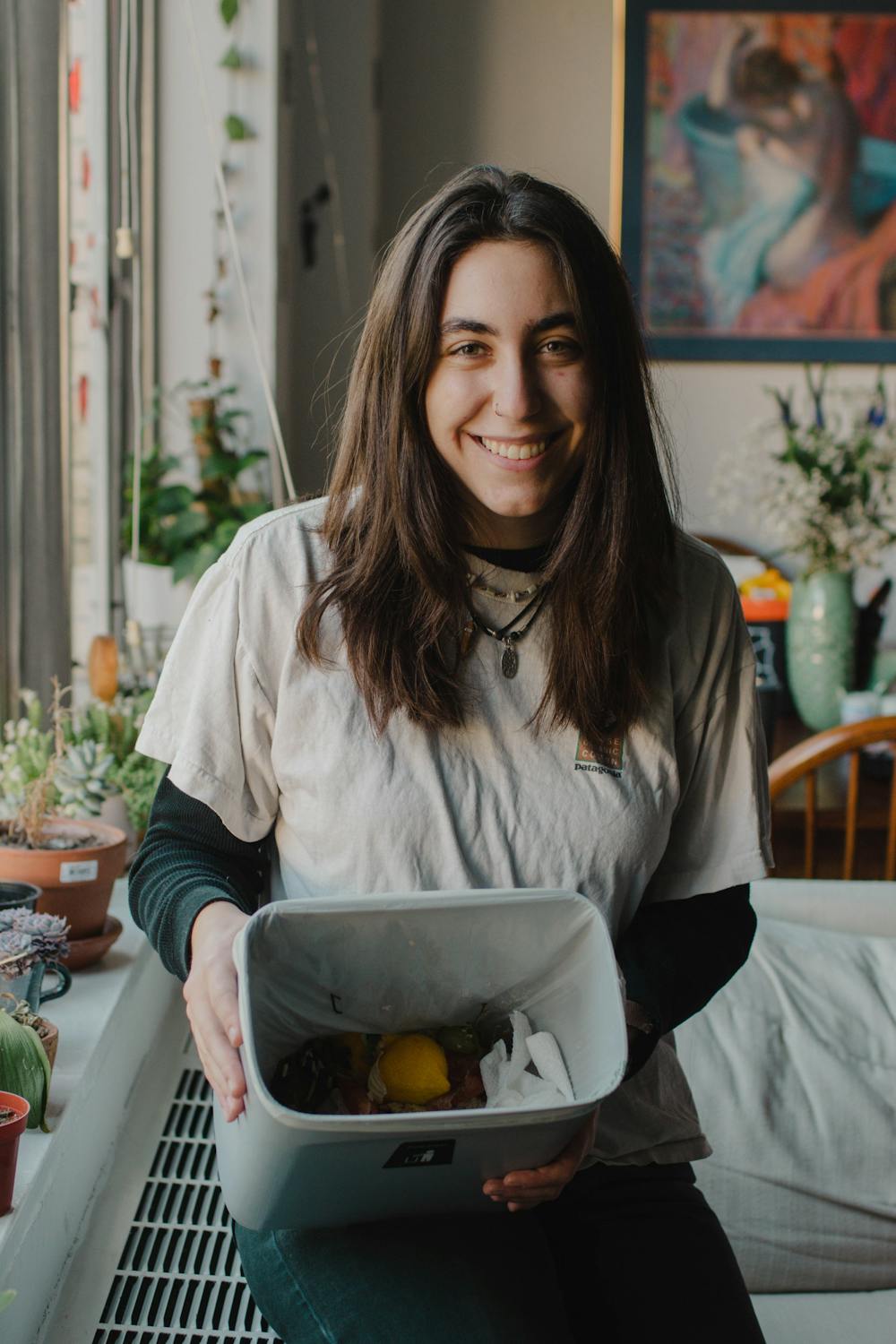Students often struggle to find ways to help the environment in a residence hall or small apartment, but composting is easier than many students think.
Marielle Orman, a junior in the College of Arts and Sciences, composts out of her apartment and has encouraged her roommates to do the same. She takes inspiration from her parents and the fact that she grew up composting in her home.
“I’m currently signed up with a subscription service,” Orman said. “Every Monday night I put out my compost bin full of all my compost from the week outside of my apartment building, and then the service called Compost Crew comes and picks it up.”
Subscribers can get their compost back in the form of rich soil which can be used for potted plants and gardens. Orman said that she does it “both to make myself feel good and know that if I’m not getting the soil or the dirt, someone else is gonna be benefiting from it.”
“I came upon the service when I moved off of campus and was just looking for a way to compost,” Orman said. “I was realizing how much food waste my roommates and I were having and making and I just felt kind of guilty about it.”
In addition to food waste, Orman said she composts “napkins, tissues, paper towels, any of my leftovers that I don’t eat, any fruit that goes bad, pretty much any food product.”
People often think that composting is restricted to only food items, and don’t realize some paper products can also be composted. Zero Waste Club AU and AU’s Office of Sustainability are resources for students to start composting, as well as compost bins with informational signage around campus.
“I think that AU does a good job by having compost bins available all throughout campus,” Orman said. “[But] when I lived on campus in the dorms, I found that people would just throw anything in all three bins,” so it's important to educate students about composting when they move in, Orman said.
“If you see others making sure that they are putting all their food waste and extra things that can be composted in the compost bins, then you’re more likely to also do so,” Orman said.
Especially in a residence hall, where students are living in close quarters, they can be heavily influenced by the actions of their peers.
“I think that doing the act of something, especially on a campus like AU, is a lot harder for people than posting about it on social media or saying that they want to support something,” Orman said. Orman also suggested that in general, students struggle to take daily actions to help the environment.
“I think it's something everyone should be implementing into their lives, it really does not take a lot of time or energy,” Orman said.
This article was edited by Soumya Sahay, Patricia McGee and Abigail Pritchard. Copy editing done by Isabelle Kravis and Olivia Citarella.





